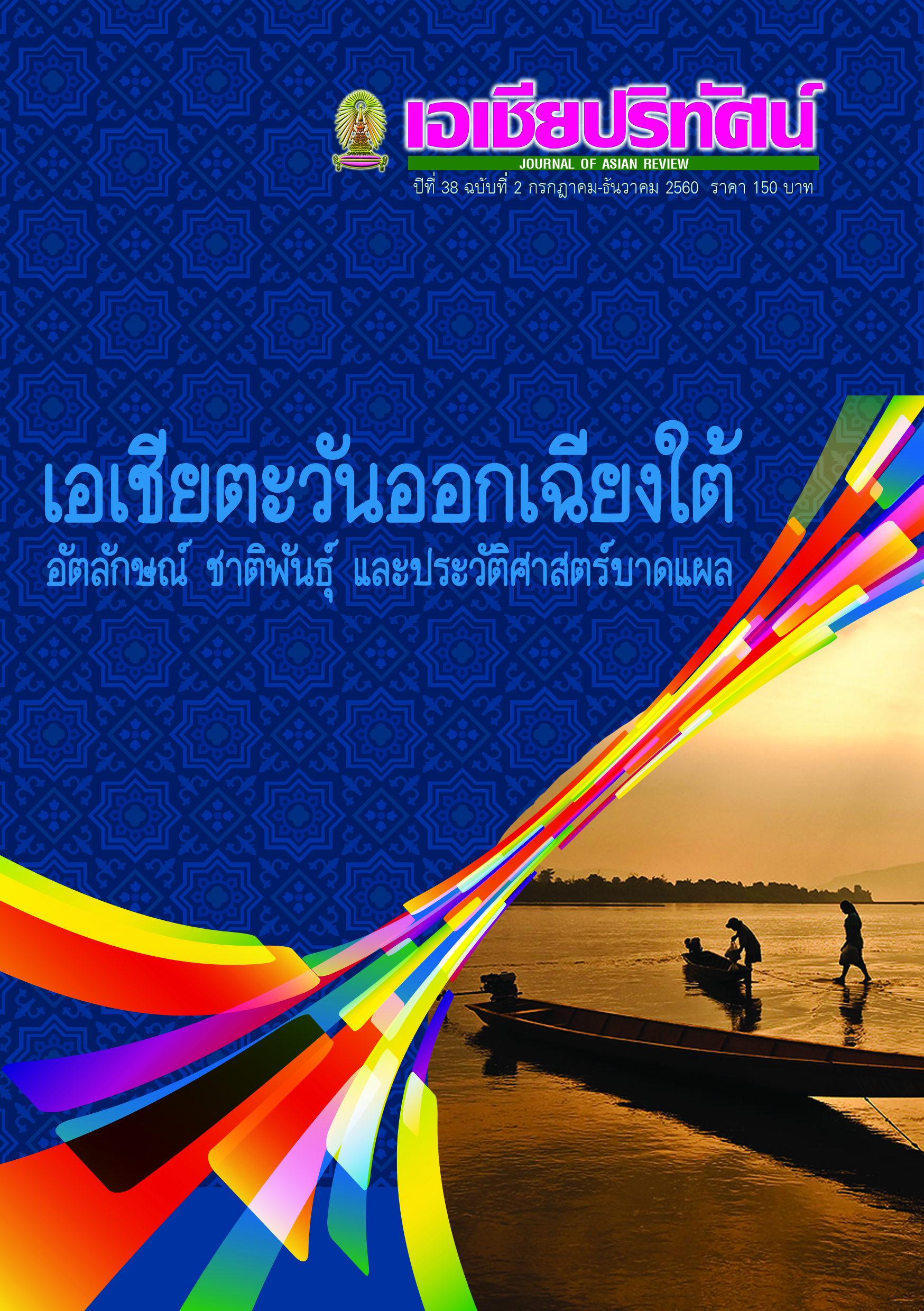The formation of the anti-ethno-narcotic nationalism of Shan State Army
Main Article Content
Abstract
This paper attempts to study the formation of anti-narcotic ethnic-nationalism by the Shan State Army in dealing with the narcotic problem along the Thai-Burmese border. It argues that there are two changing patterns of this effort. Firstly, there is a change in the anti-narcotic policy during the peace process with a view to gaining a political advantage. Secondly, the effort involves a change in political ideology relating to the narcotic problem. The anti-narcotic ideology has been integrated as part of nationalism. This change was evident in the establishment of the Shan State Museum. Interestingly, this phenomenon is the part of the anti-narcotic ethno-politics, which has been continually proceeding on the border. The research result is useful for Thailand in formulating its anti-narcotic strategy and policy, especially insofar as this involves using the ethic networks to distribute the transnational knowledge about the harmful effects of narcotics to the people in the border community.
Article Details
References
Boonyawongwiwat, T. 2018. The Ethno-Narcotic Politics of the Shan People : Fighting with Drugs, Fighting for the Nation on the Thai-Burmese Border. Lanham, Maryland: Lexington Books.
Collier, P. 2000. “Rebellion as a Quasi-Criminal Activity” Journal of Conflict Resolution 44(6): 839-853.
Collier, P. 2006. “Economic Cause of Civil Conflict and Their Implications for Policy.” In Turbulent Peace: The Challenges of Managing International Conflict, edited by Chester A. Crocker, Fen Osler Hampson, and Pamela Aall, 143 – 162. Washington, D.C.: United State Institute of Peace Press.
Connor, W. 1970. “Ethnic Nationalism as a Political Force” World Affairs, 133(2): 91-97.
Connor, W. 1994. Ethnonationalism: the Quest for Understanding. Princeton, N.J.: Princeton University Press.
Kramer, T. 2016. “The Current State of Counter Narcotics Policy and Drug Reform Debates in Myanmar” Brookings, Accessed August 15, 2017. https://www.brookings.edu/wp- content/uploads/2016/07/Kramer-Burma-final.pdf
Lintner, B. 1991. Cross-border drug trade in the Golden Triangle (S.E. Asia). Durham: Boundaries Research Press Durham.
Lintner, B. 1994. Burma in Revolt: Opium and Insurgency Since 1948. Boulder: Westview press.
Maleševic, S. 2013. Nation-States and Nationalisms : Organization, Ideology and Solidarity. Chichester: Polity Press.
Malone, D. and Heiko N. 2005. Economic Agendas in Civil Wars: What We Know, What We Need to
Know. WIDER Discussion Papers. World Institute for Development Economics (UNU-WIDER).
Matichonweekly, Accessed September 10, 2017. https://www.matichonweekly.com/ column/ article_26912
McCoy, A. W. 2003. The Politics of Heroin: CIA in The Global Drug Trade, Afghanistan, Southeast Asia, Central America, Columbia. Illinois: Lawrence Hill Books.
“Parade Without Gun: 7 Decade of Shan Revolution for the 70th National Day.” 2017.
Rokkan, S., and Urwin, D. W. 1983. Economy, Territory, Identity: Politics of West European Peripheries. London: Sage Publications.
Smith, M. 1999. Burma: Insurgency and the Politics of Ethnicity. New York: St: Martin's Press.
Smith, M. 2007. State of Strife: The Dynamics of Ethnic Conflict in Burma. Singapore: Institute of Southeast Asian Studies.
Taifreedom. 2014. “Restoration Council of the Shan State Releases Statement on
International Day against Drug Abuse and Illicit Trafficking on June 26, 2017.” May 27. Taifreedom.com, Accessed June 26, 2017. http://www.taifreedom.com/english/index.php/ 2014-05-27-08-24-29/state ments/644-restoration-council-of-the-shan-state-releases-statement-on-international-day-against-drug-abuse-and-illicit-trafficking-on-june-26-2017.
Yawnghwe, C. T. 1987. The Shan of Burma: Memoirs of An Exile. Singapore: Institute of Southeast Asian Studies.


